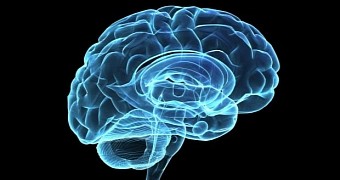The very anatomy of our brain decides whether we are positive or negative people, a team of researchers at the University of Oxford argue in a new study published in the journal Nature Neuroscience.
The team, led by specialist Stephen Smith, claim to have found evidence that, as surprising as this may sound, the ways in which different brain regions are connected and communicate to one another influence a person's behavior and lifestyle.
Thus, people who display positive behaviors and lifestyles have different connections in the brain when compared to those who display behaviors considered negative, i.e. fits of anger, substance abuse, a tendency not to play by the rules and even poor sleep.
“Variation in brain connectivity and an individual’s traits lay on a single axis - where those with classically positive lifestyles and behaviors have different connections to those with classically negative ones,” the researchers explain their findings.
“There is a strong correspondence between a particular set of connections in the brain and positive lifestyle and behavior traits,” they go on to argue.
Documenting how brain anatomy influences lifestyle, behavior
In their report in the journal Nature Neuroscience, the University of Oxford research team explain how, as part of their work, they studied the brains of as many as 461 volunteers. The focus was on mapping connections between different brain regions.
With the help of MRI scans, the scientists first identified around 200 distinct regions in the brain of each of the study participants. They then looked at how often these regions would communicate with one another by documenting electrical signals bouncing between them.
Separately, the volunteers involved in this research project were asked to complete questionnaires and tests intended to reveal details about their lifestyle and behavior, and help the researchers figure out whether they were positive or negative people.
The University of Oxford specialists say that, when all the data was compiled and analyzed, they noticed a correlation between the study participants' brain activity patterns and their overall take on life, be it a positive or a negative one.
Aspects such as vocabulary, memory, income, life satisfaction and years of education were considered positive variables. Then, as mentioned, anger, rule-breaking, substance abuse and other poor life choices were considered negative ones.

 14 DAY TRIAL //
14 DAY TRIAL //